diabetes support
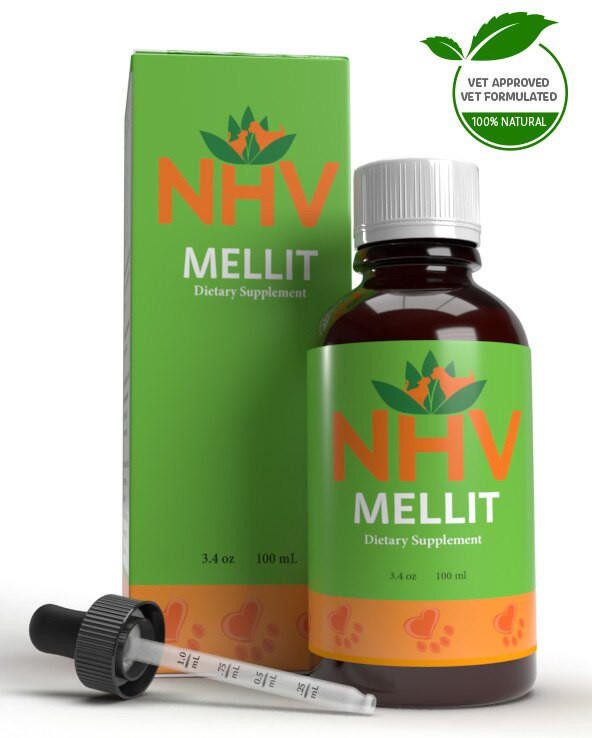
free shipping over $100 (USA & Canada)
1-877-937-4372 the pet expert hotline
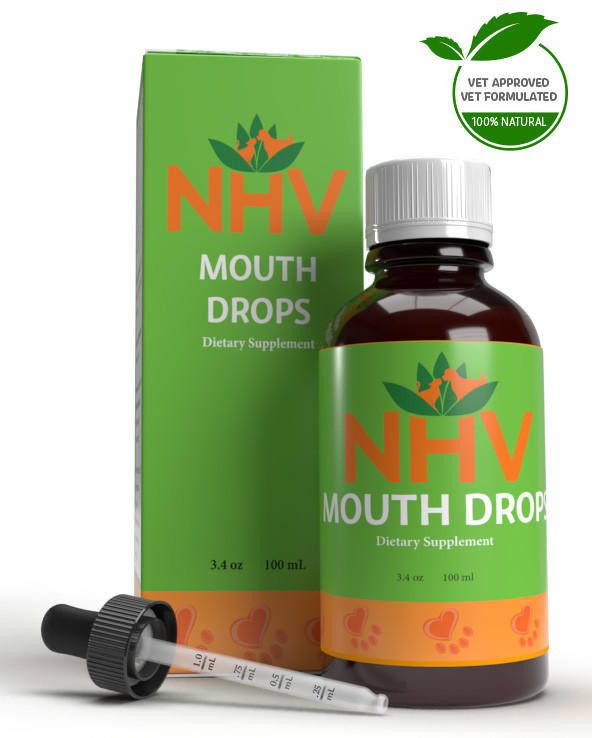
Holistic Support for Gingivitis, Gum Disease & Periodontal Disease in Dogs

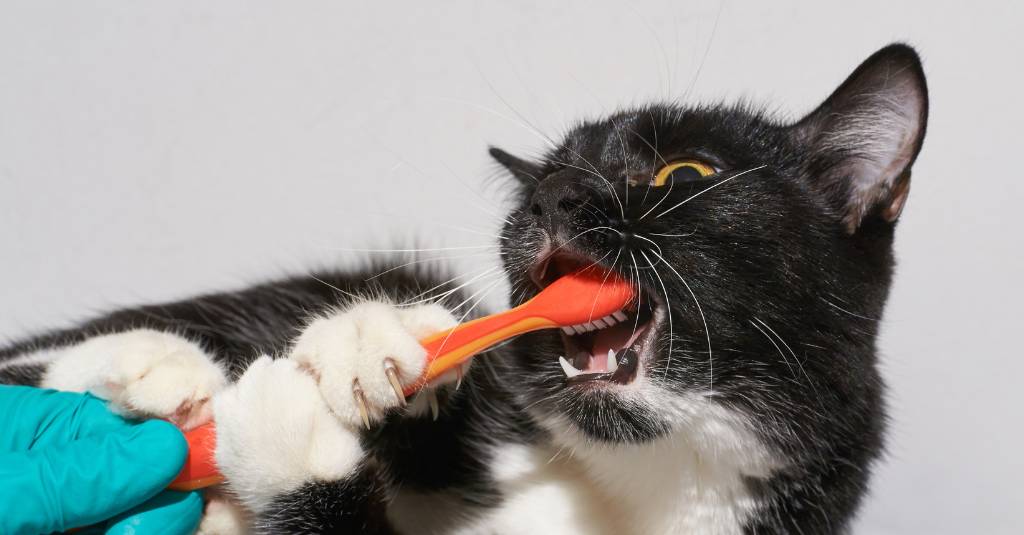
As pet owners, we often worry about our furry friends’ health. One area that requires our attention is the connection between diabetes and dental health in pets. The most prevalent oral disease in diabetic dogs and cats is periodontal disease. Understanding this relationship is crucial for maintaining our pets’ overall well-being.
High blood sugar levels in diabetic pets can increase their susceptibility to dental issues, and secondary conditions and infections because elevated blood sugar levels can lower their immune defenses. Treatment for gum disease in cats with diabetes is commonly believed to lead to better control of blood sugar levels and, in some cases, a decrease in the amount of insulin needed.
High blood sugar levels in diabetic pets can increase their susceptibility to dental issues, and secondary conditions
Diabetic pets may face a range of dental problems. These include periodontal disease, gingivitis, and tooth decay. These conditions can cause discomfort and lead to more serious health issues if left untreated. The goal of these patients is to improve their quality of life and, in some cases, improve glycemic control by removing a source of chronic infection in the form of periodontal disease.
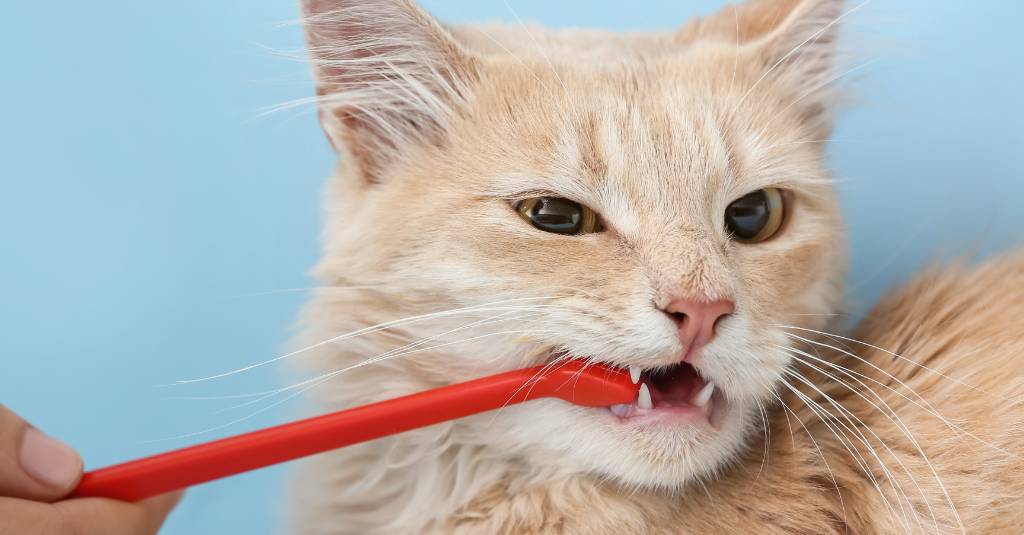
Signs of dental issues in pets can include bad breath, red or swollen gums, difficulty eating, and loose teeth. Regular dental check-ups are essential to catch and treat these problems early, ensuring your pet’s comfort and health.
Maintaining good dental health in diabetic pets involves regular brushing, chews, and professional cleanings. A balanced diet and proper oral hygiene are significant in preventing dental issues and managing dental care for diabetic pets. NHV supplements can support oral health in pets. These supplements offer benefits such as reducing inflammation and promoting healthy gums and can be easily integrated into your pet’s dental care routine.

NHV Mellit may help control blood sugar levels and reduce inflammation of the pancreas (pancreatitis). We recommend giving Mellit 30 minutes before food. NHV Stimmune may support a healthy balance of your little one’s immune system.
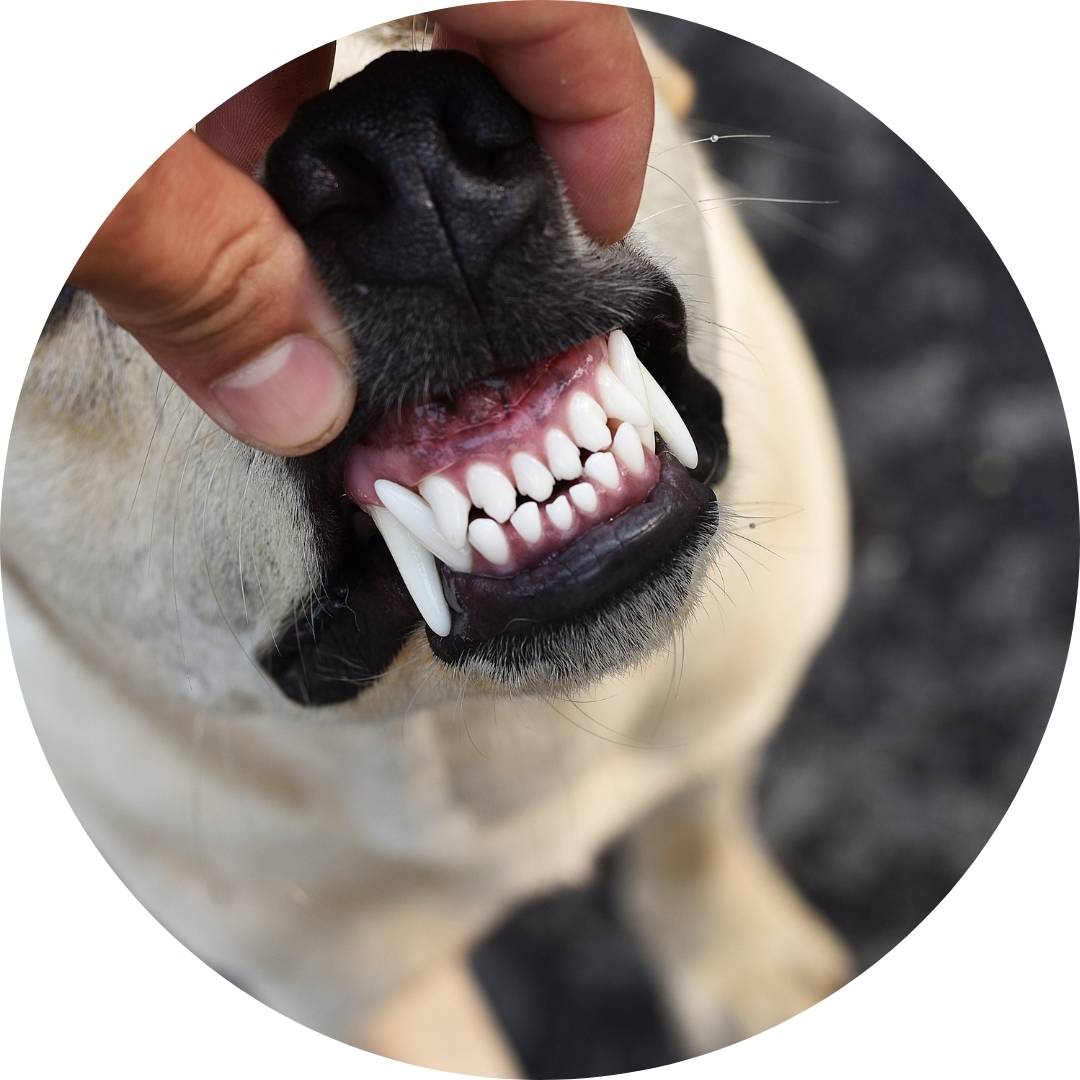
NHV Mouth Drops support in eliminating bad breath, and gingivitis, help combat bacterial infections of the mouth, help guard against tooth decay and plaque, and promote freshness to the mouth. You can use it orally (with food) or topically. Use the dropper to squirt the dosage along teeth and gums.
Regular veterinary check-ups are crucial for diabetic pets. These visits allow veterinarians to monitor diabetes and dental health, providing an opportunity to manage and prevent dental issues effectively.
The connection between diabetes and dental health in pets is a significant aspect of their overall health. Proactive care, including regular dental hygiene practices, natural supplements and veterinary advice, is essential for comprehensive diabetes and dental health management. As pet owners, our role is to ensure our pets lead healthy, happy lives, and understanding the link between diabetes and dental health is a step in the right direction
diabetes support

Supports healing of pancreatitis and diabetes mellitus in cats
buy 2 and save $3
3 month supply for a small to medium size pet
A holistic supplement formulated with 9 powerful herbs.

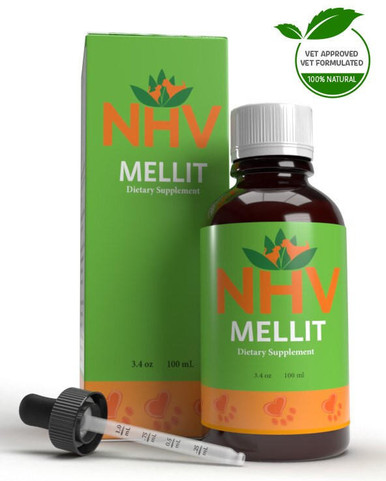
A holistic supplement formulated with 9 powerful herbs.

Diabetes in cats is a common pancreatic disorder that occurs when sugar builds up in the bloodstream instead of entering the tissue to provide energy. If left untreated, your cat can be prone to infections, a slower healing process, and even blindness. Diabetes can also lead to heart, liver or kidney disease.
Some cat breeds are more prone to diabetes, such as the Russian Blue. You can find out if your cat breed is more prone to contract diabetes at NHV breeds and conditions online.
If you have questions about any of our holistic supplements, you can ask an expert at NHV because we want to help your kitty live a longer healthier life naturally.
Read a real pet story of how NHV’s proprietary blend of holistic support helped a cat with diabetes mellitus.
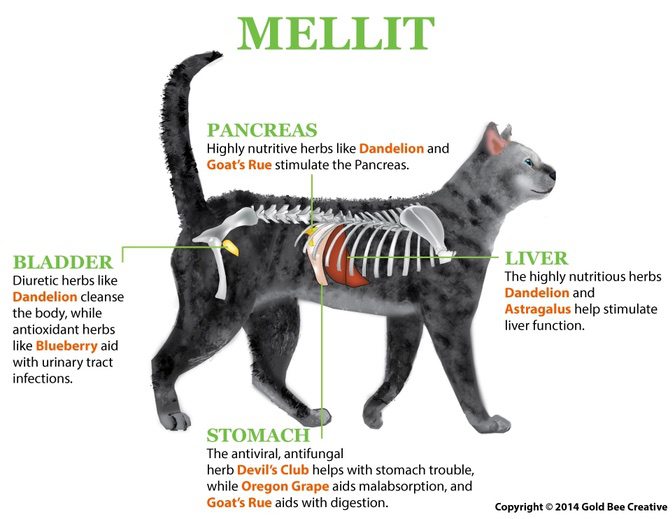
NHV’s Mellit for Cats is an herbal formula explicitly made to support pancreatitis and diabetes mellitus in cats. This potent blend contains nine powerful ingredients designed to help control blood sugar levels and provide cat circulatory support, as well as strengthen and protect other organs that may be affected due to the imbalances triggered in the body.
Select your pet's weight to determine the correct dose.
To be taken twice daily. Determine your pet’s weight and then use the easy chart below to determine the correct dose. This is the minimum dosage.
Pet's Weight Dosage
0 - 15 lb = 0.5 ml
16 - 30 lb = 1.0 ml
31 - 45 lb = 1.5 ml
46 - 60 lb = 2.0 ml
61 - 75 lb = 2.5 ml
Over 75 lb = 3.0 ml
How to Administer
Shake well before use. The easiest method is to use the dropper provide and places the drops into your pet’s food or favorite treat. You can also use the dropper and squirt directly into the pet’s mouth.
Some pets can be finicky, if this occurs consider hiding the drops in foods most pet’s love such as fish, chicken or yogurt or a favourite treat. If your pet only eats dry food then soak a few kibbles at feeding time.
For Best Results
Herbal dietary supplements are beneficial to the health and wellbeing of your pet and are safe for long-term use. Every pet responds to natural herbal supplements differently, therefore it is important to be consistent and administer the product daily. Supplements generally take two to four weeks to take effect, however this will vary from one animal to the next.
Product Storage
All NHV Natural Pet Products are pure herbal extracts and contain no artificial additives, preservatives or coloring. Shelf life after opening is 6 months and must be refrigerated after opening.
Cautions and Contraindications
Do not use Mellit in pregnant or nursing animals. Speak to your vet before using our products. A second visit is recommended if your pet’s condition does not improve, or deteriorates after continued use of the supplements.
All information provided by NHV Natural Pet Products is for educational purposes only.
Diabetes in cats is a common pancreatic disorder that occurs when sugar builds up in the bloodstream instead of entering the tissue to provide energy. If left untreated, your cat can be prone to infections, a slower healing process, and even blindness. Diabetes can also lead to heart, liver or kidney disease.
Some cat breeds are more prone to diabetes, such as the Russian Blue. You can find out if your cat breed is more prone to contract diabetes at NHV breeds and conditions online.
If you have questions about any of our holistic supplements, you can ask an expert at NHV because we want to help your kitty live a longer healthier life naturally.
Read a real pet story of how NHV’s proprietary blend of holistic support helped a cat with diabetes mellitus.

NHV’s Mellit for Cats is an herbal formula explicitly made to support pancreatitis and diabetes mellitus in cats. This potent blend contains nine powerful ingredients designed to help control blood sugar levels and provide cat circulatory support, as well as strengthen and protect other organs that may be affected due to the imbalances triggered in the body.
Select your pet's weight to determine the correct dose.
To be taken twice daily. Determine your pet’s weight and then use the easy chart below to determine the correct dose. This is the minimum dosage.
Pet's Weight Dosage
0 - 15 lb = 0.5 ml
16 - 30 lb = 1.0 ml
31 - 45 lb = 1.5 ml
46 - 60 lb = 2.0 ml
61 - 75 lb = 2.5 ml
Over 75 lb = 3.0 ml
How to Administer
Shake well before use. The easiest method is to use the dropper provide and places the drops into your pet’s food or favorite treat. You can also use the dropper and squirt directly into the pet’s mouth.
Some pets can be finicky, if this occurs consider hiding the drops in foods most pet’s love such as fish, chicken or yogurt or a favourite treat. If your pet only eats dry food then soak a few kibbles at feeding time.
For Best Results
Herbal dietary supplements are beneficial to the health and wellbeing of your pet and are safe for long-term use. Every pet responds to natural herbal supplements differently, therefore it is important to be consistent and administer the product daily. Supplements generally take two to four weeks to take effect, however this will vary from one animal to the next.
Product Storage
All NHV Natural Pet Products are pure herbal extracts and contain no artificial additives, preservatives or coloring. Shelf life after opening is 6 months and must be refrigerated after opening.
Cautions and Contraindications
Do not use Mellit in pregnant or nursing animals. Speak to your vet before using our products. A second visit is recommended if your pet’s condition does not improve, or deteriorates after continued use of the supplements.
All information provided by NHV Natural Pet Products is for educational purposes only.
Oral Care
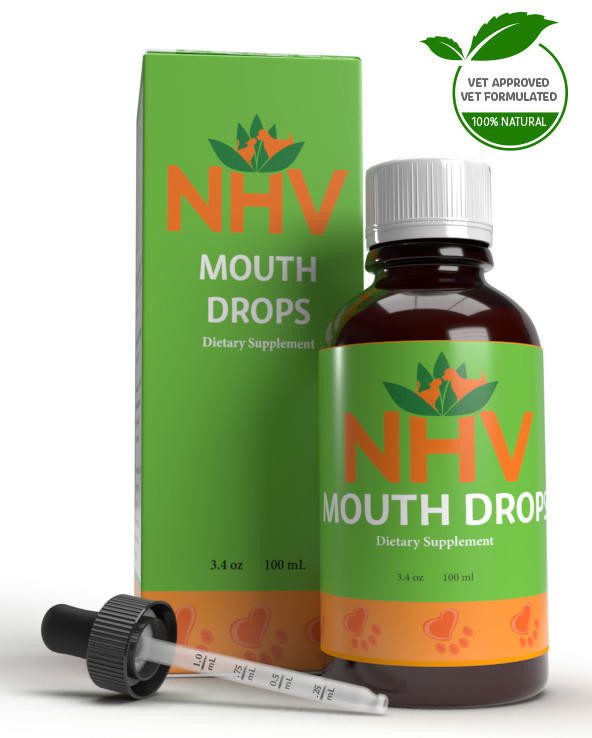
A natural herbal oral supplement that aids in eliminating bad breath, gingivitis, and helps combat bacterial infections of the mouth and helps guard against tooth decay and plaque.
buy 2 and save $3
3 month supply for a small to medium size pet.
1 bottle = 3 oz (100 ml)

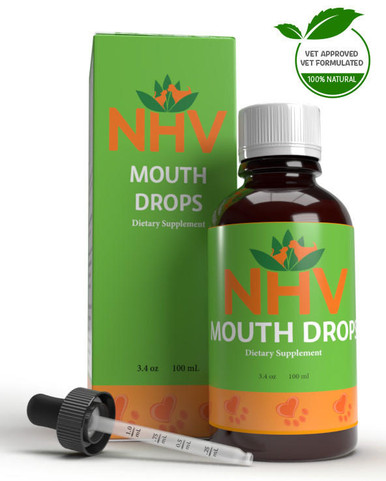
1 bottle = 3 oz (100 ml)

Does your pet have morning breath that lasts all day long? Mouth Drops from NHV Natural Pet Products are like a mouthwash for pets that helps eliminate bad breath, helps gingivitis, combats bacterial infections, and fight your pet's tooth decay and other dental problems. Use in combination with a nutritious diet and regular brushing to maintain the health of your pet’s teeth.
Mouth Drops may be beneficial for these conditions:
Additional Support:
Never attempt to diagnose a pet. A vet will be able to perform the required test and make the necessary suggestion.
White Oak – White oak is a type of hardwood tree native to eastern and central North America. It is traditionally used as an antiseptic, astringent, and anti-inflammatory herb. It has antiviral, antilithic, and astringent properties that control pain, inflammation, and help control bleeding.
Plantain – Plantain is an astringent, antibacterial, demulcent, emollient and anti-inflammatory herb. It has expectorant properties that soothe and lubricate internal mucous membranes, and helps stop bleeding.
Sage – Sage is often recommended as an antiseptic, and is commonly used for infections or sores of the mouth as well as topically for pets with gingivitis. It has anti-fungal, antiviral, astringent, diaphoretic and carminative properties. It also contains essential oils with antibacterial properties that neutralize mouth odor.
Echinacea Angustifolia – Commonly used for infections, Echinacea Angustifolia contains many active chemicals such as polysaccharides, flavonoids, caffeic acid, essential oils, alkylamides and polyacetylenes that have strong immune-stimulating (antiviral and antibacterial) properties.
Myrrh – It strengthens and activates the immune system and helps fight infections. It helps soothe inflamed gums, canker sores, loose teeth, and eliminates bad breath.
Neem – Neem has antibacterial, anti-fungal, anti-inflammatory, analgesic, and alterative properties, and is also high in antioxidants. Studies have found that it helps reduce plaque build up, defends against microorganisms, helps with gum bleeding, and reduces bacteria and bad breath.
Select your pet's weight to determine the correct dose.
Topically: To be taken twice daily. 1 drop for every 2 lb of body weight twice a day up to 50 lb. This is the minimum dosage.
Using the dropper squirt the dosage along teeth and gums.
Orally: To be taken twice daily. Determine your pet’s weight and then use the easy chart below to determine the correct dose. This is the minimum dosage.
Pet's Weight Dosage
0 - 15 lb = 0.5 ml
16 - 30 lb = 1.0 ml
31 - 45 lb = 1.5 ml
46 - 60 lb = 2.0 ml
61 - 75 lb = 2.5 ml
Over 75 lb = 3.0 ml
Some pets may require a larger dosage due to their metabolism. You can safely double the recommended dosage.
How to Administer
Shake well before use. Use the dropper provided to squirt the dosage directly into your pet’s mouth along the gums and teeth.. Some pets may be finicky and resist your attempts to administer drops directly into their mouth. If this occurs, try placing the drops in your pet’s food or favourite treat. You may want to consider hiding the drops in foods most pet’s love such as fish, chicken, or yogurt. When serving dry food, use the dropper to soak a few kibbles at feeding time.
For Best Results
Herbal dietary supplements are beneficial to the health and wellbeing of your pet and are safe for long-term use. Every pet responds to natural herbal supplements differently, therefore it is important to be consistent and administer the product daily. Supplements generally take two to four weeks to take effect, however this will vary from one animal to the next.
Product Storage
All NHV Natural Pet Products are pure herbal extracts and contain no artificial additives, preservatives or coloring. Shelf life after opening is 6 months and must be refrigerated after opening.
Cautions and Contraindications
Do not use Mouth Drops in pregnant or nursing animals. Speak to your vet before using our products. A second visit is recommended if your pet’s condition does not improve, or deteriorates after continued use of the supplements.
All information provided by NHV Natural Pet Products is for educational purposes only.
Does your pet have morning breath that lasts all day long? Mouth Drops from NHV Natural Pet Products are like a mouthwash for pets that helps eliminate bad breath, helps gingivitis, combats bacterial infections, and fight your pet's tooth decay and other dental problems. Use in combination with a nutritious diet and regular brushing to maintain the health of your pet’s teeth.
Mouth Drops may be beneficial for these conditions:
Additional Support:
Never attempt to diagnose a pet. A vet will be able to perform the required test and make the necessary suggestion.
White Oak – White oak is a type of hardwood tree native to eastern and central North America. It is traditionally used as an antiseptic, astringent, and anti-inflammatory herb. It has antiviral, antilithic, and astringent properties that control pain, inflammation, and help control bleeding.
Plantain – Plantain is an astringent, antibacterial, demulcent, emollient and anti-inflammatory herb. It has expectorant properties that soothe and lubricate internal mucous membranes, and helps stop bleeding.
Sage – Sage is often recommended as an antiseptic, and is commonly used for infections or sores of the mouth as well as topically for pets with gingivitis. It has anti-fungal, antiviral, astringent, diaphoretic and carminative properties. It also contains essential oils with antibacterial properties that neutralize mouth odor.
Echinacea Angustifolia – Commonly used for infections, Echinacea Angustifolia contains many active chemicals such as polysaccharides, flavonoids, caffeic acid, essential oils, alkylamides and polyacetylenes that have strong immune-stimulating (antiviral and antibacterial) properties.
Myrrh – It strengthens and activates the immune system and helps fight infections. It helps soothe inflamed gums, canker sores, loose teeth, and eliminates bad breath.
Neem – Neem has antibacterial, anti-fungal, anti-inflammatory, analgesic, and alterative properties, and is also high in antioxidants. Studies have found that it helps reduce plaque build up, defends against microorganisms, helps with gum bleeding, and reduces bacteria and bad breath.
Select your pet's weight to determine the correct dose.
Topically: To be taken twice daily. 1 drop for every 2 lb of body weight twice a day up to 50 lb. This is the minimum dosage.
Using the dropper squirt the dosage along teeth and gums.
Orally: To be taken twice daily. Determine your pet’s weight and then use the easy chart below to determine the correct dose. This is the minimum dosage.
Pet's Weight Dosage
0 - 15 lb = 0.5 ml
16 - 30 lb = 1.0 ml
31 - 45 lb = 1.5 ml
46 - 60 lb = 2.0 ml
61 - 75 lb = 2.5 ml
Over 75 lb = 3.0 ml
Some pets may require a larger dosage due to their metabolism. You can safely double the recommended dosage.
How to Administer
Shake well before use. Use the dropper provided to squirt the dosage directly into your pet’s mouth along the gums and teeth.. Some pets may be finicky and resist your attempts to administer drops directly into their mouth. If this occurs, try placing the drops in your pet’s food or favourite treat. You may want to consider hiding the drops in foods most pet’s love such as fish, chicken, or yogurt. When serving dry food, use the dropper to soak a few kibbles at feeding time.
For Best Results
Herbal dietary supplements are beneficial to the health and wellbeing of your pet and are safe for long-term use. Every pet responds to natural herbal supplements differently, therefore it is important to be consistent and administer the product daily. Supplements generally take two to four weeks to take effect, however this will vary from one animal to the next.
Product Storage
All NHV Natural Pet Products are pure herbal extracts and contain no artificial additives, preservatives or coloring. Shelf life after opening is 6 months and must be refrigerated after opening.
Cautions and Contraindications
Do not use Mouth Drops in pregnant or nursing animals. Speak to your vet before using our products. A second visit is recommended if your pet’s condition does not improve, or deteriorates after continued use of the supplements.
All information provided by NHV Natural Pet Products is for educational purposes only.
Published: August 26, 2024